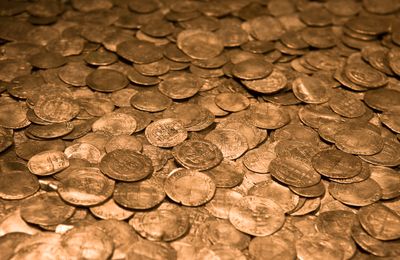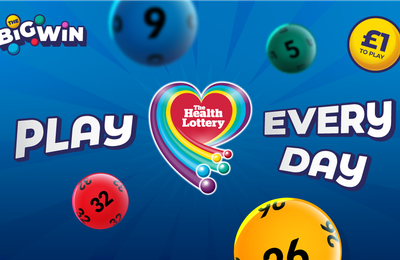The Health Lottery operates on behalf of The Health Lottery Foundation, PO BOX 8109, Daventry, NN11 1JA. Promoter: Delva Patman.
Common lottery myths debunked
There’s a little magic involved in winning the lottery. As with anything that captures the imagination, the lottery is surrounded by myths. These myths spread, eventually affecting the way society perceives the lottery. Which statements are facts and which are common misconceptions?
1. You’re more likely to be struck by lightning than win the lottery
Of all the lottery-related myths, this is the one you’ll hear time and time again.
Our verdict? It’s both true and false.
According to David Hand in his book: The Improbability Principle, the chances of a person being struck by lightning are 1 in 300,000. The odds of winning the UK National Lottery are approximately 1 in 14 million.
Of course, based on these numbers, it’s more likely that a person will be struck by lightning than win the National Lottery. So: true.
However, there are many winners of the lottery who do not win the jackpot, and many prize tiers in the Lotto and The Health Lottery are significantly more likely than being struck by lightning.
Our QuickWin game, for example, boasts odds of just 1 in 6 of winning any prize, while All or Nothing, another of our lottery draw games, pays out, on average, once in every 4.5 plays. This is, in fact, the lottery with the best odds of any you can play in Britain!
As a side note, it's worth pointing out that being struck by lightning isn't the best yardstick for a very unlikely event. The American Park Ranger Roy Sullivan was struck by lightning no fewer than seven times in his lifetime!
2. If you always play the same numbers, you’ll win eventually
False! While you can play the same numbers every time if you like (there’s nothing wrong with a little superstition), the winning numbers are chosen at random and have no correlation with what has already won. While in theory you could play the same numbers for all eternity and eventually win, playing the same numbers does not increase your chances in practice.
3. Your odds are better when the jackpot is smaller
False! While this myth sounds believable, the size of the jackpot has no bearing on your chances of winning. If you’re looking to improve your chances, you can help your cause by buying more tickets.
It is a common misconception that having more tickets improves the odds of winning. The odds don't change, regardless of the number of tickets one player has, or indeed how many players there are. Well, unless you have so many tickets that you cover off every combination of numbers in a given draw - which may well cost more than the jackpot...
More players increases the chance of any jackpot being shared, but has no bearing on the chance of what numbers are drawn.
What is true is that the odds of winning varies hugely between different lotteries. We have compared some popular British options for you here.
4. The lottery is a tax on the poor
The most common criticism of the lottery is that it acts as a form of “taxation on the poor.” Critics claim that individuals who play lotteries tend to be less well-educated and have lower income than individuals who do not play. While it’s true that some low-income people do play the lottery, people from all walks of life take part. And, of course, the lottery is also completely voluntary, unlike a tax.
5. You can’t win the lottery twice
Hey, why not? Your odds are the same every time you play, so luck could strike twice (or more!) In July 2017 in California, a teen won $555,555 on a scratch ticket and then won $100,000 in the same week. In 2002, a British man won £194,501 on the Lotto, and then £121,157 a few months later using the exact same numbers. The odds of this were one in five trillion. Anything can happen...
Closer to home, The Health Lottery has several players who have won twice. Meet Frank from Blyth, who scooped two jackpots with the same set of numbers, and shared his good luck with charities and loved ones both times. Honestly, it couldn't have happened to a nicer bloke. And it's a pretty good case for playing by Direct Debit, as it was news to him that he'd won each time...
6. Lotteries only benefit those who win
A lottery’s reach is far wider than just the people who win the jackpot, especially for online charity raffles. Monthly raffles for little jackpots (some as low as £500 or a grand or two) now form a significant proportion of the funding activity for charities as diverse as animal shelters, hospices and national organisations as big as Age UK and the British Heart Foundation.
A portion of the proceeds of the National Lottery go towards projects like funding Olympic champions, the arts and charities.
Playing The Health Lottery raises money to support health-related projects in local communities. This is true no matter which of our games you choose, be it The Big Win, All or Nothing, QuickWin or one of our many Instant Win games.
So you get the thrill of playing the lottery and the wider community benefits.















